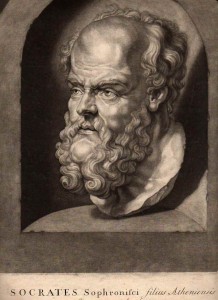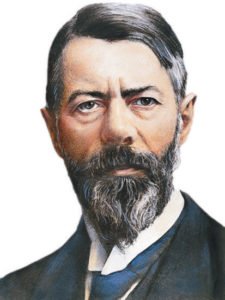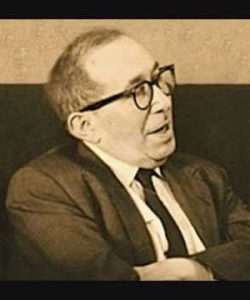The words of this language are to refer to what only the speaker can know — to his immediate private sensations. So another person cannot understand the language. — Ludwig Wittgenstein, Philosophical Investigations (more…)
Tag: relativism
-
2,637 words
The key problem of our age is disconnection from truth. This takes several distinct forms. The first, and most obvious, is the prevalence of lies. As everyone knows, modern, Western civilization is founded upon lies about human nature, culture, and history. The most significant of these — underlying, in one form of another, most of the rest — is the equality lie; the myth of human equality, which is the chief myth of our age. (“Myth,” as most of my readers know, can have a positive or a negative connotation, as there are salutary myths; here, obviously, I am using the term in its purely negative sense.) (more…)
-
2,151 words
Author’s Note:
The following text is based on a transcript by Rollo Walker of a 1999 lecture on “Objectivity, Relativism, and Well-Being.” This text only includes the first half of the transcript, and it has been massively condensed and rewritten.
Socrates is famous for arguing that all human beings pursue happiness; (more…)
-
4,535 words
Part 1 here
The Intellectual Bankruptcy of the Present Age
Not only does Strauss claim that historicism is a healthy reaction to the intellectual bankruptcy of the modern world, in the next section of his essay, he also attributes this bankruptcy to non-historicist causes.
First, Strauss talks about Max Weber’s Learning and Science as Vocation. He specifically objects to Weber’s claim that reason cannot speak about the ultimate aims of life: (more…)
-
3,215 words
Leo Strauss is widely known as a critic of historicism and an advocate of classical philosophy. Historicism holds that philosophical ideas are relative to culture, whereas classical philosophy aims for knowledge of nature, which is not relative to culture. But what is Strauss’s own point of view? Does he base his arguments on historicist or classical philosophical premises? (more…)
-
2,587 words
The key problem of our age is disconnection from truth. This takes several distinct forms. The first, and most obvious, is the prevalence of lies. As everyone knows, modern, western civilization is founded upon lies about human nature, culture, and history. The most significant of these – underlying, in one form of another, most of the rest – is the equality lie; the myth of human equality, which is the chief myth of our age. (“Myth,” as most of my readers know, can have a positive or a negative connotation, as there are salutary myths; here, obviously, I am using the term in its purely negative sense.) (more…)
-
Akira Kurosawa’s Rashomon (1950) is commonly found on lists of the world’s greatest movies, and deservedly so. Rashomon features avant-garde narrative techniques (flashbacks, multiple points of view), dynamic black-and-white cinematography by Kazuo Miyagawa, compelling Ravel-like music by Fumio Hayasaka, subtle and intensely dramatic performances, and a complex but tightly edited script, all combined into a fast-paced 88-minute masterpiece with an emotionally devastating climax. (more…)
-
February 25, 2016 Greg Johnson
Carl Schmitt sobre la Tiranía de los Valores
2,271 words
English original here
Los dos ensayos de Carl Schmitt sobre “La Tiranía de los Valores” (1959 y 1967) son típicos de su trabajo. Contienen simples e iluminadoras ideas las cuales, sin embargo, son complicadas de poner en conjunto porque Schmitt las presenta sólo a través de conversaciones complejas con otros pensadores y escuelas de pensamiento. (more…)
-
2,587 words
The key problem of our age is disconnection from truth. This takes several distinct forms. The first, and most obvious, is the prevalence of lies. As everyone knows, modern, western civilization is founded upon lies about human nature, culture, and history. The most significant of these – underlying, in one form of another, most of the rest – is the equality lie; the myth of human equality, which is the chief myth of our age. (“Myth,” as most of my readers know, can have a positive or a negative connotation, as there are salutary myths; here, obviously, I am using the term in its purely negative sense.) (more…)
-
February 5, 2015 Carl Schmitt
Tirania valorilor
6,138 words
English version here
Nota editorului:
Textul următor, scris în 1967, este unul din cele două eseuri publicate de Carl Schmitt sub titlul „The Tyranny of Values.” Ambele au fost reluate în Die Tyrannei der Werte (Hamburg: Lutherisches Verlagshaus, 1979). Traducerea este din The Tyranny of Values, iar traducător este Simona Drăghici (Washington, D.C.: Plutarch Press, 1996), traducere care este dificil de găsit[1].
Introducere
-
2,587 words
The key problem of our age is disconnection from truth. This takes several distinct forms. The first, and most obvious, is the prevalence of lies. As everyone knows, modern, western civilization is founded upon lies about human nature, culture, and history. The most significant of these – underlying, in one form of another, most of the rest – is the equality lie; the myth of human equality, which is the chief myth of our age. (“Myth,” as most of my readers know, can have a positive or a negative connotation, as there are salutary myths; here, obviously, I am using the term in its purely negative sense.) (more…)
-
October 2, 2014 Giuliano Adriano Malvicini
Dugin contra el Racismo









